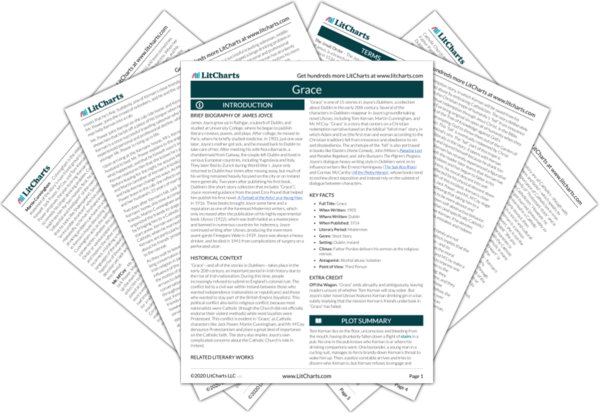Father Purdon’s sermon hinges on comparing religious faith to business and accounting. Just as accountants help clients settle their debts, he argues, he as a priest can help his congregation absolve themselves of sin, or “settle their accounts.” Purdon’s metaphor implies a very straightforward understanding of good and bad, virtue and sin. It contains none of the spiritual complexity and understanding one would expect from a priest, and presents Catholicism as a kind of “service” performed for everyday folks who then don’t have to take too much responsibility for their spiritual lives. In this way, the priest offers people a pardon for the sorts of shallow and un-knowledgeable Catholic belief on display in the rest of the story. But the fact that the priest’s name—Purdon—is a kind of mangled version of “pardon” implies that such easy pardons may not, in fact, be the real thing. The story then ends abruptly, with the end of the sermon, and never shows whether the retreat was successful or if Kernan was able to find redemption and turn his life around. The story initially was set up as a redemption story, in which a man literally “fell” and then his friends banded together to bring him to God and improve his life. That the story ends without even showing the outcome of that attempted redemption—forcing the reader to think about whether redemption is or isn’t likely in this case—suddenly refocuses the story from being about the redemption of one man to one that focuses on whether and how such redemption is possible. More specifically, it forces the reader to consider whether Irish society and the Irish Catholic Church as portrayed in the story can offer such redemption.
